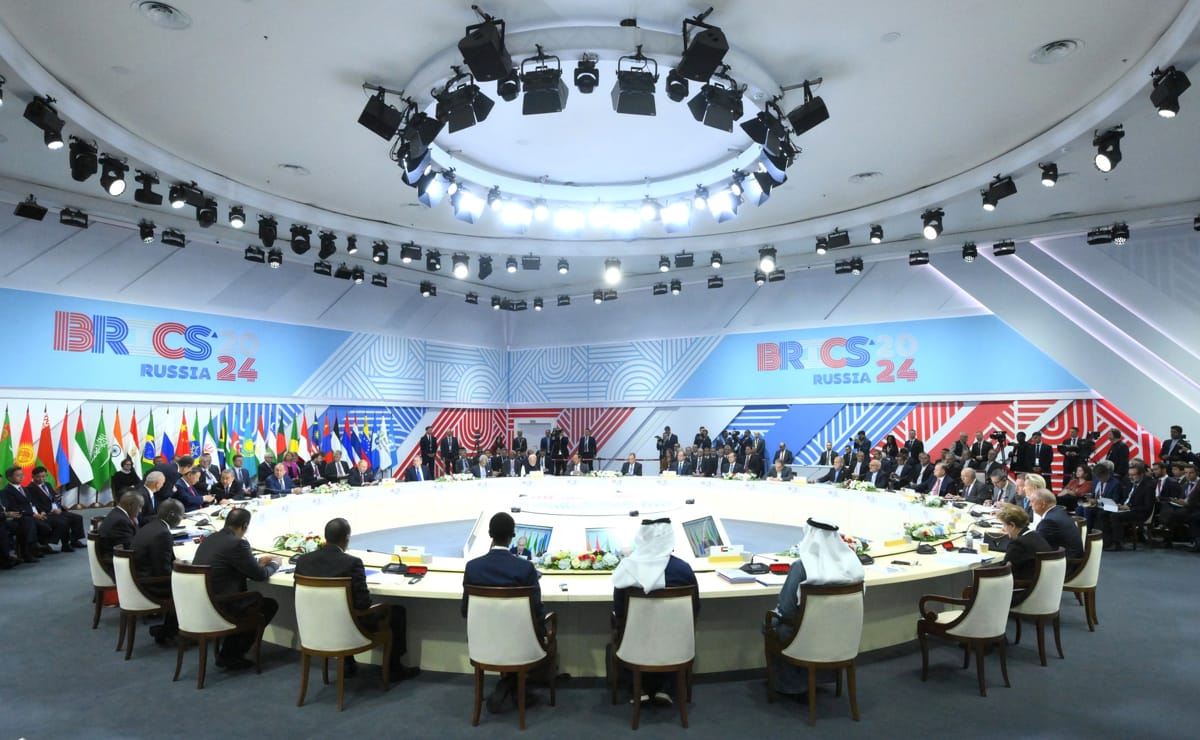Indonesia has officially become a new BRICS partner, joining countries such as Malaysia, Thailand, Vietnam, Türkiye, Nigeria, Cuba and Kazakhstan. Indonesia’s Foreign Minister Sugiono announced this shift last week at the most recent BRICS summit in Kazan, Russia. Last year, at talks in Johannesburg, South Africa, China advocated for the expansion of BRICS and Indonesia was identified as a potential member supported by all five existing BRICS nations. However, Indonesia’s then president Joko Widodo was hesitant. He was still weighing the pros and cons, he said, and that there was no urgency for Jakarta to pursue membership.
With Prabowo Subianto having now taken over the presidency, the new government in Jakarta appears to have a different perspective.
Sugiono emphasised that Indonesia’s membership in BRICS does not align the country with any specific bloc, but reflects a commitment to an independent and active foreign policy, allowing the country to engage in various international forums.
Joining BRICS as a partner shows Indonesia’s aims under Prabowo to be a more active participant in international forums while remaining independent.
Together, BRICS, named for Brazil, Russia, India, China and South Africa, accounts for 45% of the world’s population and one-third of the global economy. During the Kazan summit, Russia’s President Vladimir Putin, holding the rotating presidency of the forum, proclaimed the beginning of a new “world order” designed to challenge the US-led international system both politically and economically.
The Kazan declaration released following the summit envisions an international order akin to China’s Community of Shared Future. Both promote principles such as sovereign equality, mutual respect, fairness, inclusiveness, common growth, and respect for the legitimate and reasonable security concerns of all countries. The emphasis on the “democratisation of international relations” is alternative language deeply rooted in the belief in Beijing and Moscow that the US hegemonic order is the root cause of many international conflicts and problems.
Putin has previously expressed his intention to challenge the dominance of the US dollar in international trade and finance by advocating for an alternative international payment system. The Kazan declaration promotes the use of local currencies in financial transactions among BRICS countries and their trading partners. This approach appears both feasible and necessary for Moscow, as Russia's central bank is prohibited from using US dollars. Putin noted that 95% of trade between China and Russia is conducted in Renminbi (RMB) and Rubles (RUB).

Indonesia’s wariness about this agenda under Widodo might have also resulted from a view that he could be seen as too close to Beijing. But Prabowo does not carry that burden. Although Prabowo shows admiration for China, under his leadership at the defence ministry, Indonesia maintained closer defence cooperation with Western countries.
Moreover, countries such as Thailand, which has an alliance treaty relationship with the United States, and Türkiye, a NATO member, have become BRICS partners. These examples may have reassured Prabowo about the limits to the potential backlash.
In addition, India is also mindful of some of Russia and China’s goals for BRICS, and would be concerned if the group appears hostile towards the West.
Indonesia’s economic development is closely tied to China. In 2023, Indonesia was the largest recipient of China’s Belt and Road Initiative (BRI) funding with US$7.3 billion in investment. China is also Indonesia’s top trading partner. Prabowo seems willing to follow the Chinese logic that the BRI and BRICS are interconnected. President Xi Jinping emphasised this link at the opening of the 2017 Belt and Road Forum, stating that China will collaborate with the BRICS New Development Bank and other multinational development institutions to support BRI projects.
In addition, Indonesia has longstanding concerns about conflict in the Middle East and shared its frustration with the response from other forums in the international community. At the summit, Sugiono met with representatives from the Palestine Liberation Organisation (PLO) and reaffirmed Indonesia’s support for the establishment of a Palestinian State. Indonesia sought to associate itself with the Kazan declaration as a direct expression of concern about the Palestinian question, also acknowledging South Africa’s provisional measures in the International Court of Justice regarding legal proceedings against Israel.
Joining BRICS as a partner shows Indonesia’s aims under Prabowo to be a more active participant in international forums while remaining independent. But the main aim is primarily in seeking development opportunities, rather than endorsing Russia’s or China’s views on the world order.

